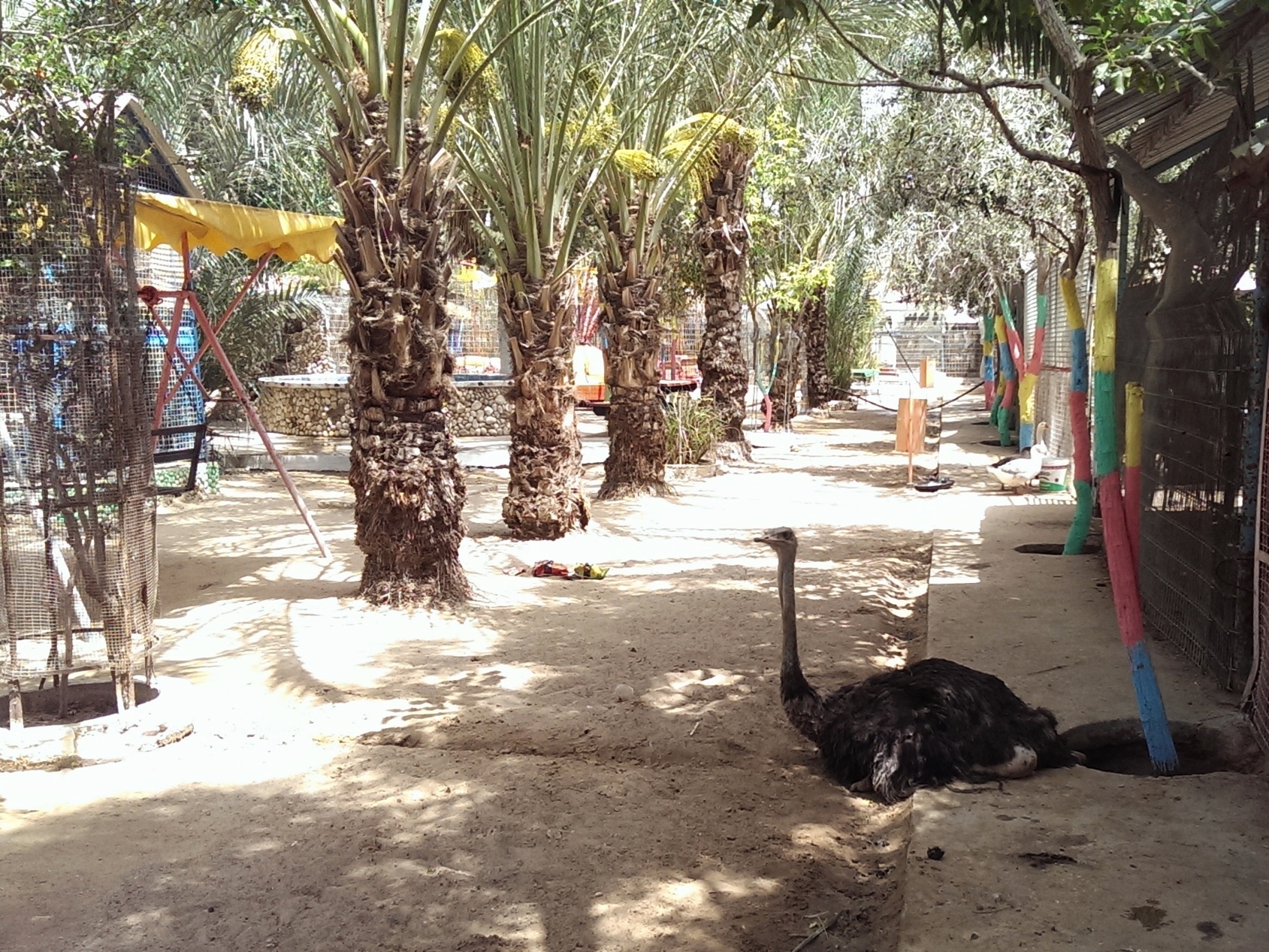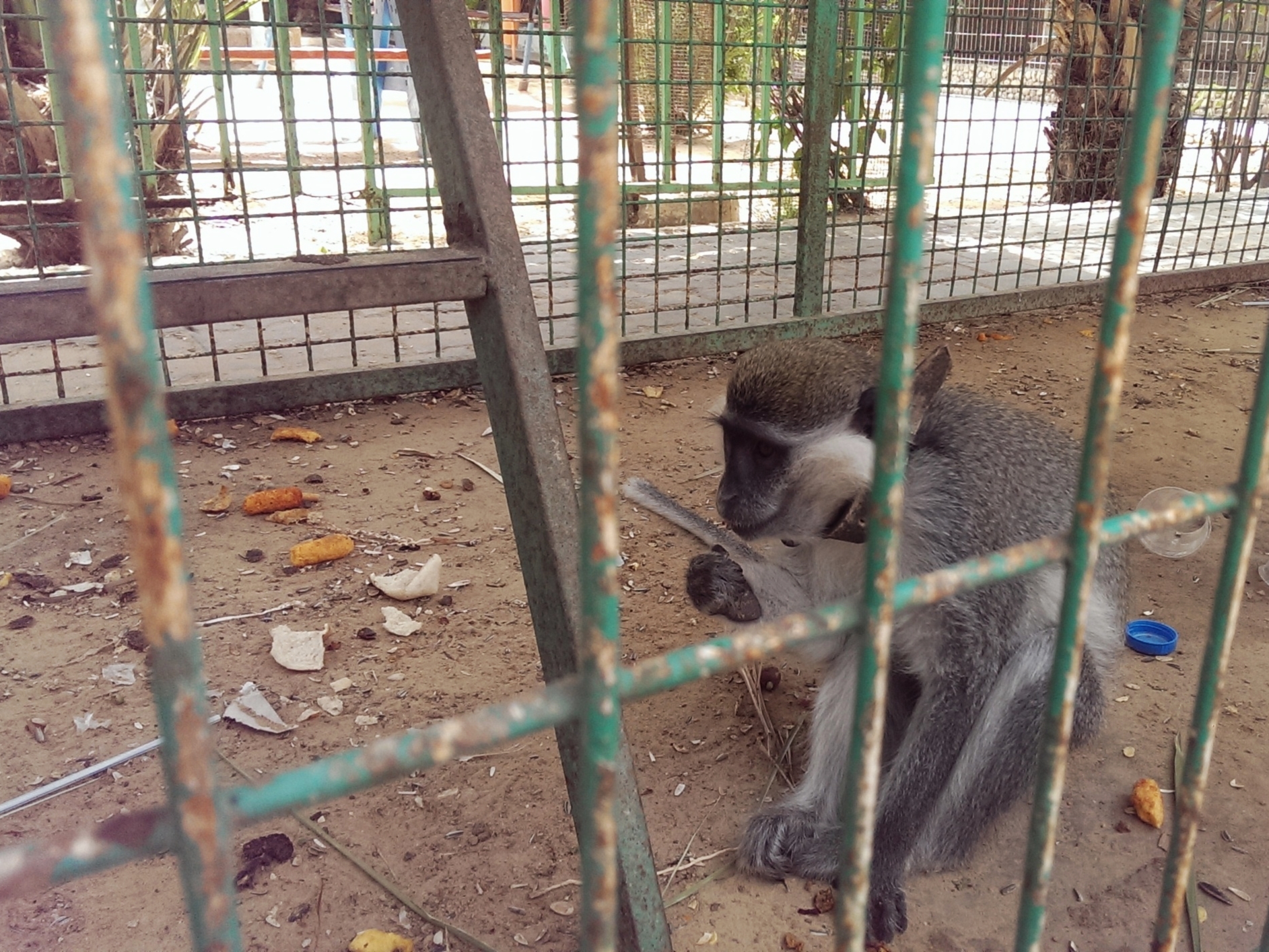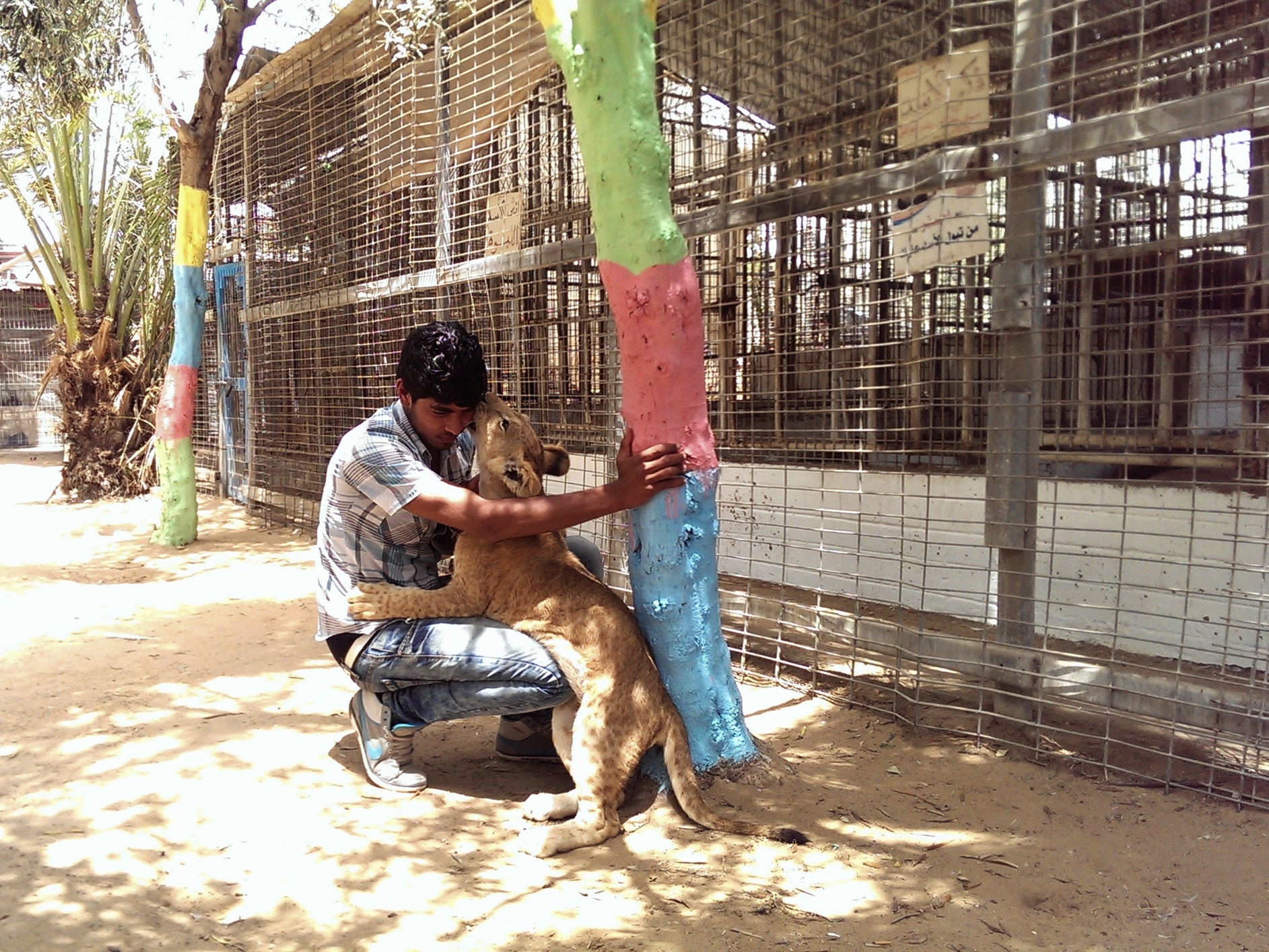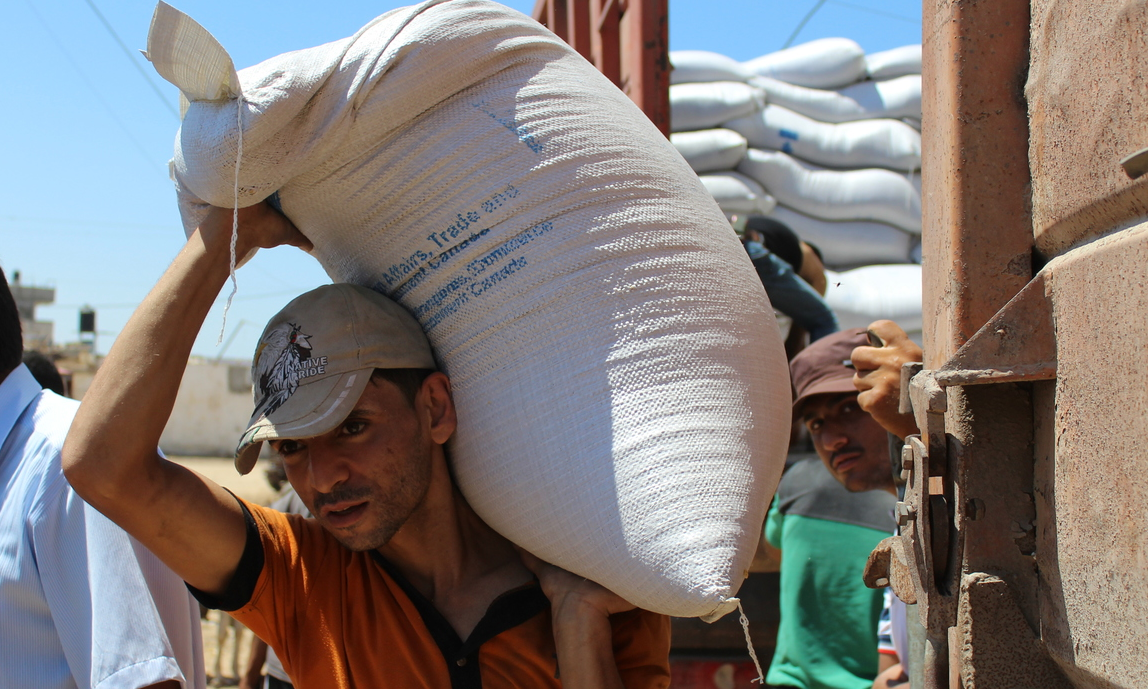August 24, 2015 | Al Jazeera English
Amid a crippling Israeli blockade of the Palestinian territory, zoos in Gaza cannot properly care for their animals.
RAFAH, GAZA - On a dirt road, behind tall white walls decorated with faded paintings of zebras, giraffes and lions, lies Rafah Zoo.
It is hidden away from Rafah's busy streets, but inside, hundreds of colourful birds in cages tweet loudly - almost drowning out the sound of children playing in a pool nearby.
Opened in the late 1990s by the Jumaa family, Rafah Zoo was the first amusement and leisure park for communities in the Gaza Strip.
Jihad Jumaa, a zookeeper and son of the zoo's owner, told Al Jazeera that his father's original mission had been to provide a place for Gaza's families - small children, especially - to relax and enjoy themselves.
















